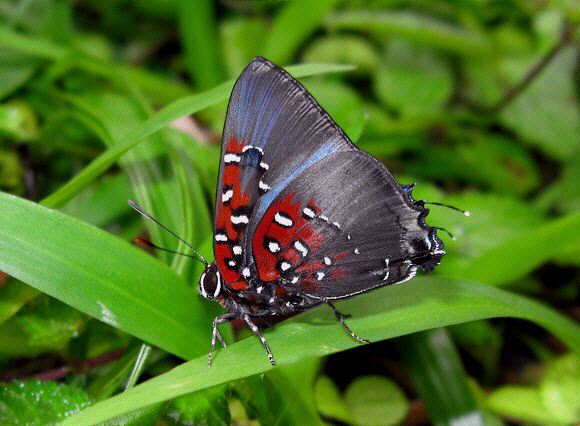
Introduction
Almost all neotropical Theclinae species are placed in the Eumaeini. The tribe is not particularly well represented in collections, so until fairly recently a high percentage remained unstudied, and were inappropriately filed away in the ‘convenience’ genus Thecla. Many taxonomists have attempted to rationalise the systematics of the Eumaeini, the most recent being Robbins who published a revision in 2004, reclassifying the taxa into 83 genera. Currently there are 1058 known species. Taking into account their small size, secretive behaviour, and the great similarities between many species, it is estimated that about another 200 species probably remain to be discovered.
The genus Brangas comprises of about 16-20 species, all of which are neotropical in distribution, with the majority of species being confined to northern South America. Several of the species were recently discovered by Robbins and have not yet been scientifically described.
The males of all Brangas species have dazzling metallic blue uppersides, with a narrow blackish edging at the apex. Females have more rounded forewings. Their uppersides are a dull earthy brown colour, with a slight pale blue sheen at the base of the wings.
Brangas caranus is found in Surinam, Venezuela and Trinidad.
Habitats
This species is found in rainforest at altitudes between about 200-1200m.
Lifecycle
This appears to be unknown.
Adult behaviour
The butterflies are rare, and invariably encountered as singletons. They sometimes visit the flowers of Eupatorium for nectar.
